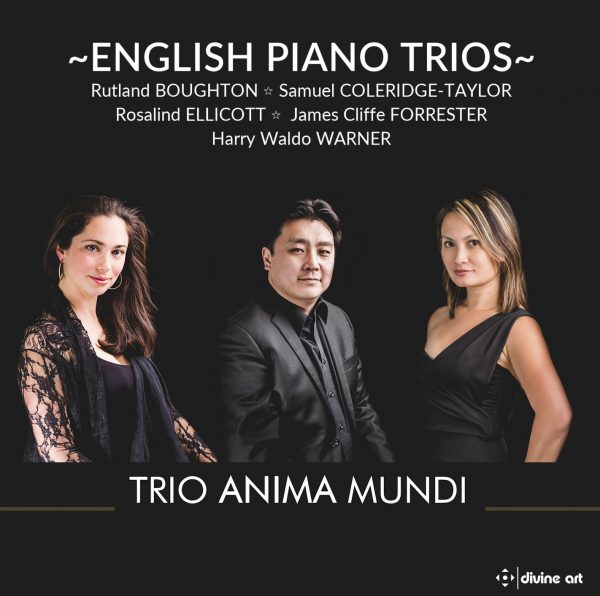The Chronicle Review Corner
English composers are featured on this album and only two were familiar to us, Rosalind Ellicott (from her performances at the Three Choirs Festival, Hereford, Gloucester and Worcester, back in another life on the Malvern Gazette) and Samuel Coleridge-Taylor, he of Hiawatha. The sound is similar throughout, although the music gets more complex/ sophisticated as the programme plays through; there seems to be a chronology from oldest (Ellicott, died 1924) to Warner (d 1945). The fact that it’s a trio gives the music a certain sparseness and, to our ears, it has that rather prim and proper sound of music from a century ago. It might be flowery and romantic, but it’s always polite.
Ellicott opens and the sleeve notes say the opening allegro of her trio is “not unlike Brahms”, while the rest of the piece is rather sombre. Coleridge-Taylor’s piece is more dramatic. He also had links to the Three Choirs Festival, Worcester boy Edward Elgar declining a commission but recommending Coleridge-Taylor, “far and away the cleverest fellow going among the young men”.
Rutland Boughton’s Celtic Prelude starts off gently but genteelly builds, adopting a rather gentle Celtic tone (by way of a Wild West campfire) before calming down.
James Cliffe Forrester’s Folk Song Fantasy is next. It won the piano trio category of the fifth Cobbett Competition in 1917. The stipulations stated that a work for piano trio be written to be as near to a quarter of an hour as possible, that the writing touch “the golden mean” as regards technical difficulty, and the thematic material be taken from the folk song of the country to which the composer belonged. Forrester used folk songs Rosebud In June and Twankydillo (a song about a rich farmer called Roger Twangdillo). Mr Twangdillo came from a more carefree time and this, like the rest of the programme, is refined.
Harry Waldo Warner’s trio closes and is perhaps the warmest of the pieces. Back in his day, Warner (d. 1945) was professor of viola at the Guildhall and a well regarded performer and composer; philanthropist Walter Willson Cobbett supported him and once told of a “critic enthusiastically appraising the second phantasy of Waldo Warner under the mistaken impression that it was the advertised Schoenberg quartet for which it had been substituted”. The trio was the winning work of the Elizabeth Sprague Coolidge prize in the US.
Cobbett knew his stuff: he was editor/author of Cobbett’s Cyclopedic Survey of Chamber Music and commissioned works of chamber music from emerging and leading British composers of his time, including chamber works by Benjamin Britten, Frank Bridge, Ralph Vaughan Williams, Arnold Bax and Eugene Goossens.
A pleasant and diverting collection of music, a little dry perhaps but stimulating. Trio Anima Mundi is one of Australia’s finest chamber trios; since its founding in 2008 it has won several international awards and makes efforts to unearth and perform “forgotten but worthy works”, which sums this up well.
@divineartrecordingsgroup
A First Inversion Company
Registered Office:
176-178 Pontefract Road, Cudworth, Barnsley S72 8BE
+44 1226 596703
Fort Worth, TX 76110
+1.682.233.4978












